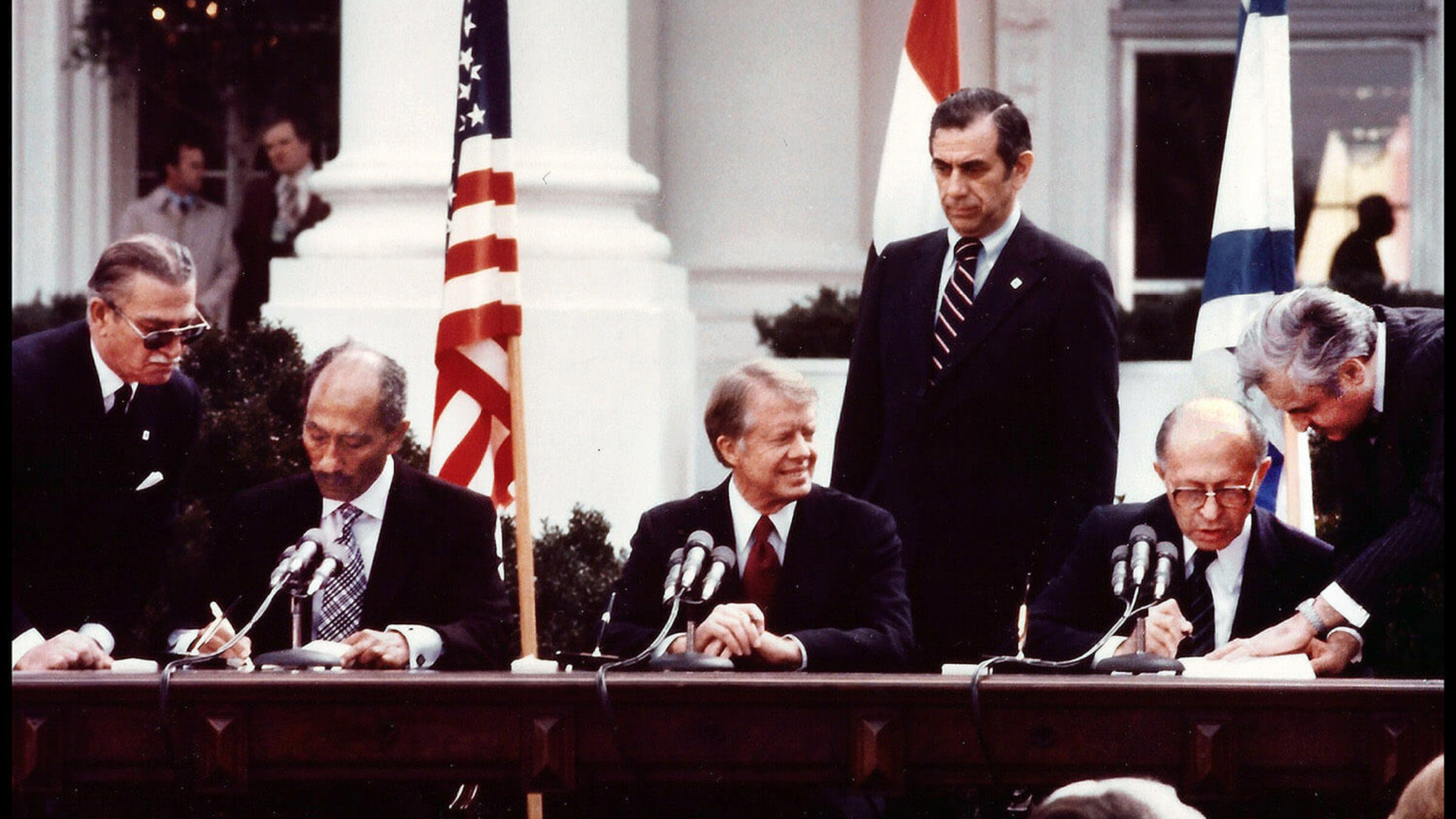
Photo EssayPhotos: Remembering Jimmy Carter’s most Jewish moments
Photographer Robert A. Cumins captured Carter during trips to Israel, signing the Camp David Accords and at Shabbat dinner
Jimmy Carter, Egypt’s President Anwar Sadat and Israel’s Prime Minister Menachem Begin sign the Egyptian-Israeli Peace Treaty at the White House on March 26, 1979. Photo by Robert A. Cumins
Photo EssayPhotos: Remembering Jimmy Carter’s most Jewish moments
Photographer Robert A. Cumins captured Carter during trips to Israel, signing the Camp David Accords and at Shabbat dinner
Former President Jimmy Carter, who died at 100, leaves behind a legacy of promoting peace in the Middle East, most notably through the Camp David Accords.
In 1978, Carter invited Israeli Prime Minister Menachem Begin and Egyptian President Anwar Sadat to the presidential retreat at Camp David in Maryland, where he mediated 13 days of secret negotiations. The result was a framework for the groundbreaking Israeli-Egyptian Peace Treaty, which the two countries signed six months later, in 1979.
Photographer Robert A. Cumins was there to capture Carter, Begin and Sadat signing the treaty — only one of the key Jewish moments he documented during Carter’s presidency. Cumins also followed Carter on a trip to Israel, where the former president spoke in the Chagall State Hall of the Knesset, and documented Begin’s visits to Washington, including a Shabbat dinner at the presidential guest house where Carter, then a Southern Baptist, made kiddush with his guests.
To commemorate Carter’s work with Israel and American Jews, Cumins dug through decades of photographs in his personal archive to share these rare images with the Forward.
1 / 10 Welcoming Menachem Begin to Washington
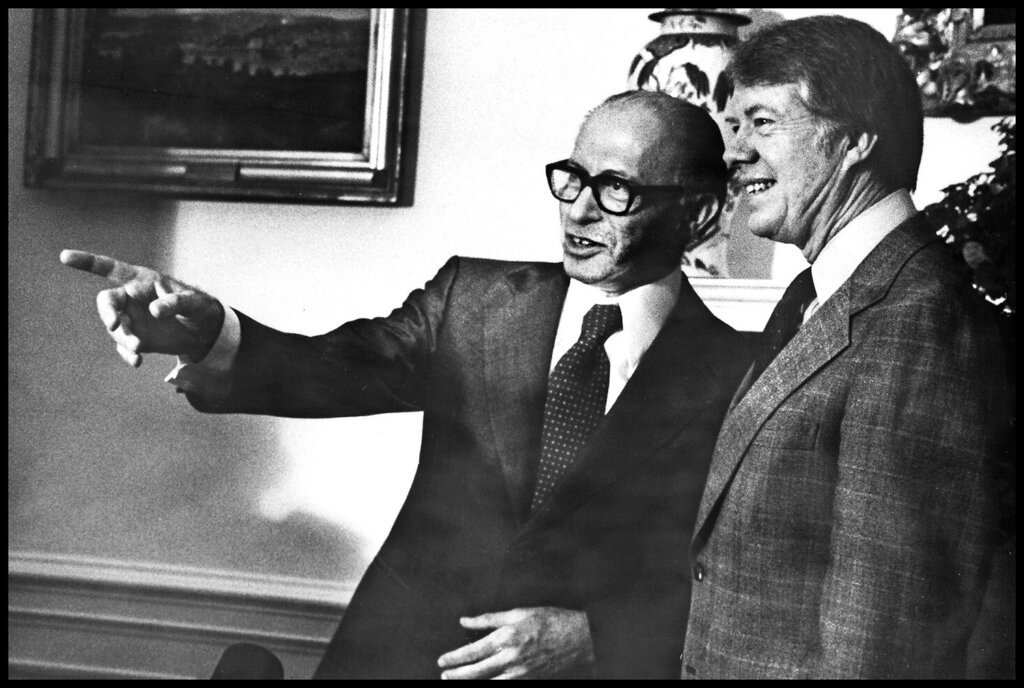
Two months after being elected, Israel's Prime Minister Menachem Begin visited President Jimmy Carter at the White House on July 19, 1977. Photo by Robert A. Cumins
Carter welcomed the newly-elected Israeli Prime Minister Menachem Begin to the White House on July 19, 1977. The visit began a political relationship between the two leaders that resulted in the groundbreaking negotiation of the Camp David Accords in 1978 and the signing of the Israeli-Egyptian Peace Treaty that followed in 1979.
2 / 10 Begin's first speech at the White House
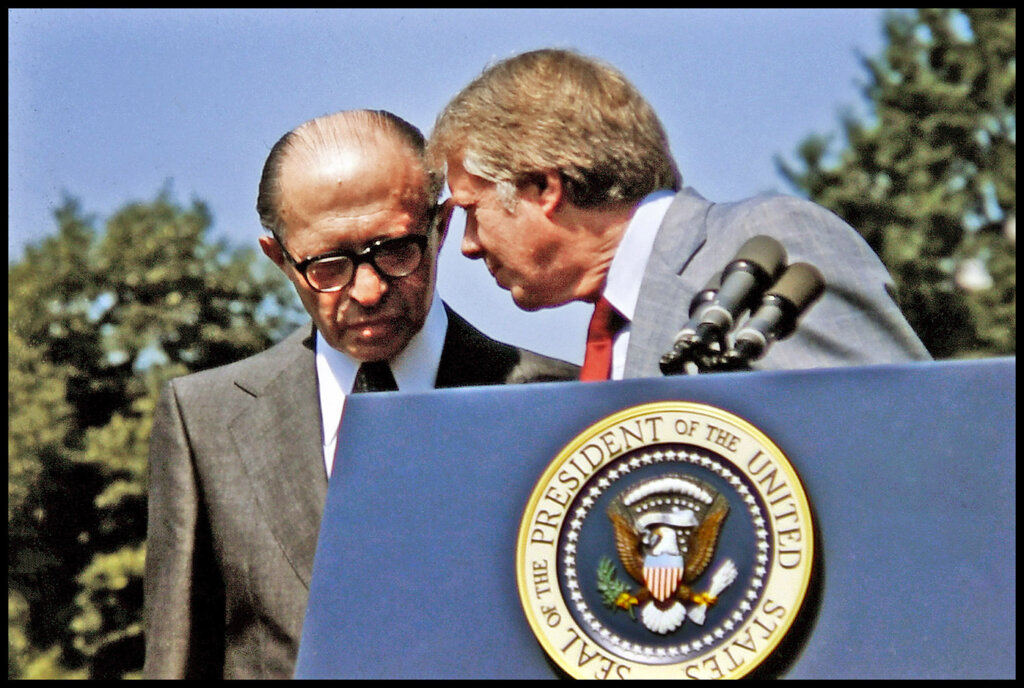
Carter and Begin at the White House. Photo by Robert A. Cumins
On the same day, Carter and Begin stood at the podium on the South Lawn of the White House before Begin delivered a speech. It was his first visit to the United States as Prime Minister of Israel.
3 / 10 Carter and Bella Abzug at the National Women's Conference
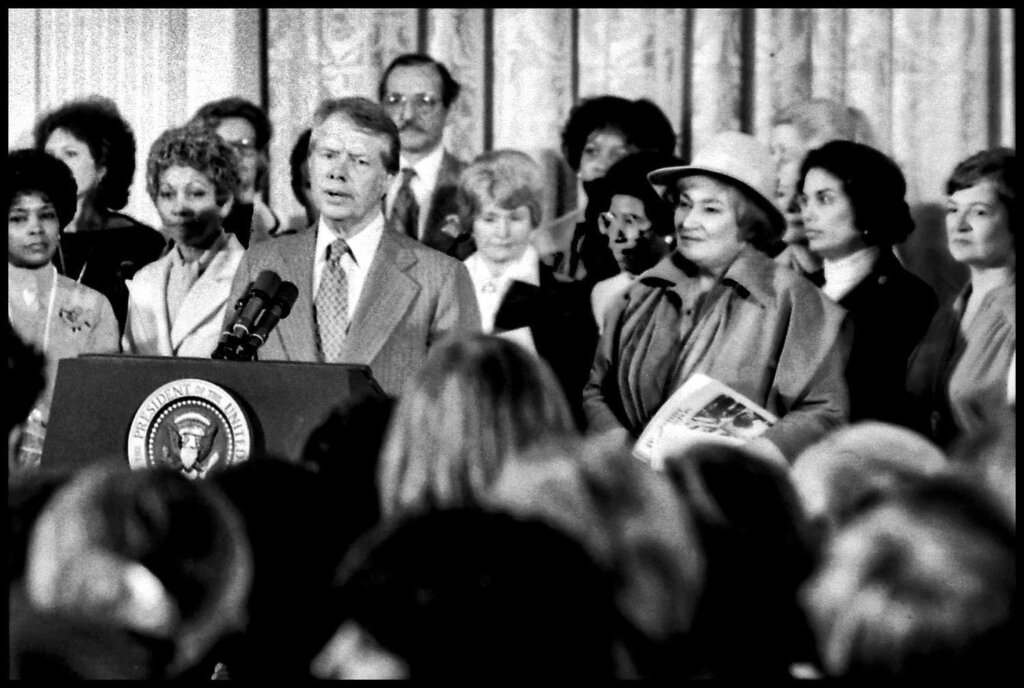
Carter and Abzug at the National Women's Conference. Photo by Robert A. Cumins
President Carter accepted an advance text of the official report of the First National Women’s Conference from Bella Abzug, right, at a ceremony in the White House East Room on March 22, 1978.
4 / 10 Moshe Dayan at the White House
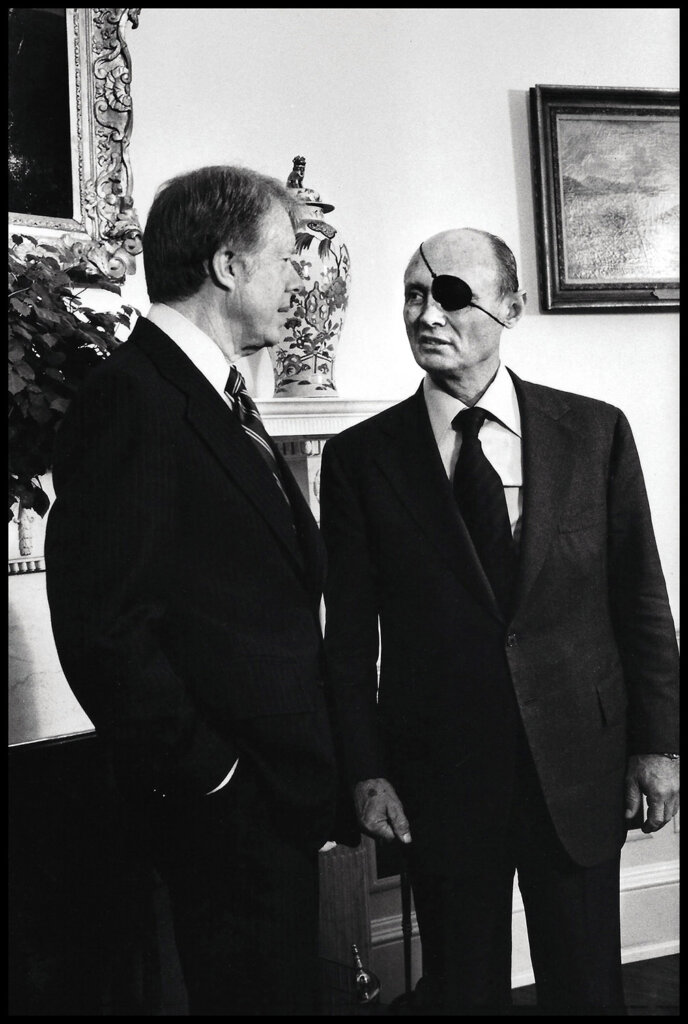
Carter and Dayan at the White House. Photo by Robert A. Cumins
President Jimmy Carter met with Israel’s Minister of Foreign Affairs, Moshe Dayan, at the White House on Feb. 19, 1979.
5 / 10 A presidential Shabbat dinner
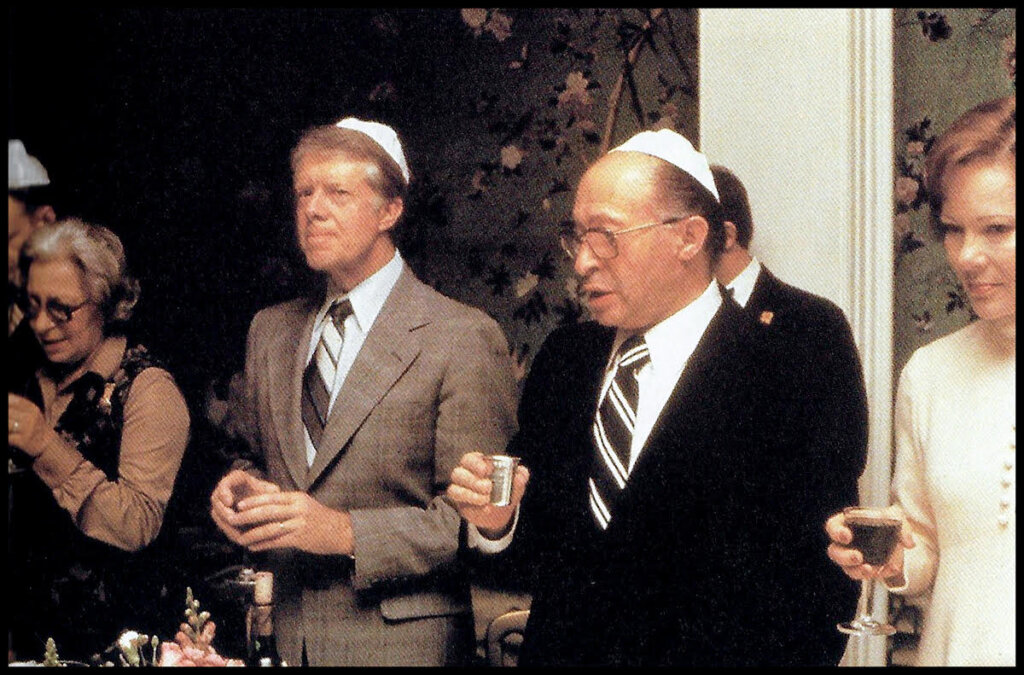
Carter and Begin shared a Shabbat dinner with their families. Photo by Robert A. Cumins
Carter and Begin made kiddush at a Shabbat dinner with their families at Blair House, the presidential guest house, in Washington, D.C., on March 2, 1979.
6 / 10 Carter at the Knesset
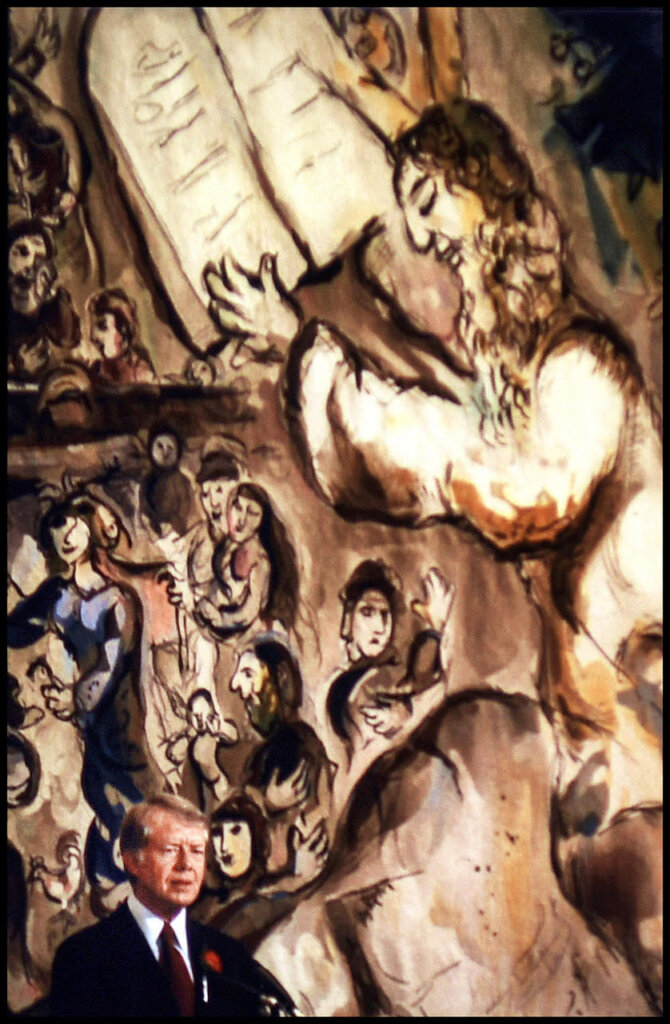
Carter at the Knesset. Photo by Robert A. Cumins
Carter spoke in front of a tapestry in the Knesset’s Chagall State Hall in Jerusalem on March 12, 1979.
7 / 10 Begin's return to Washington
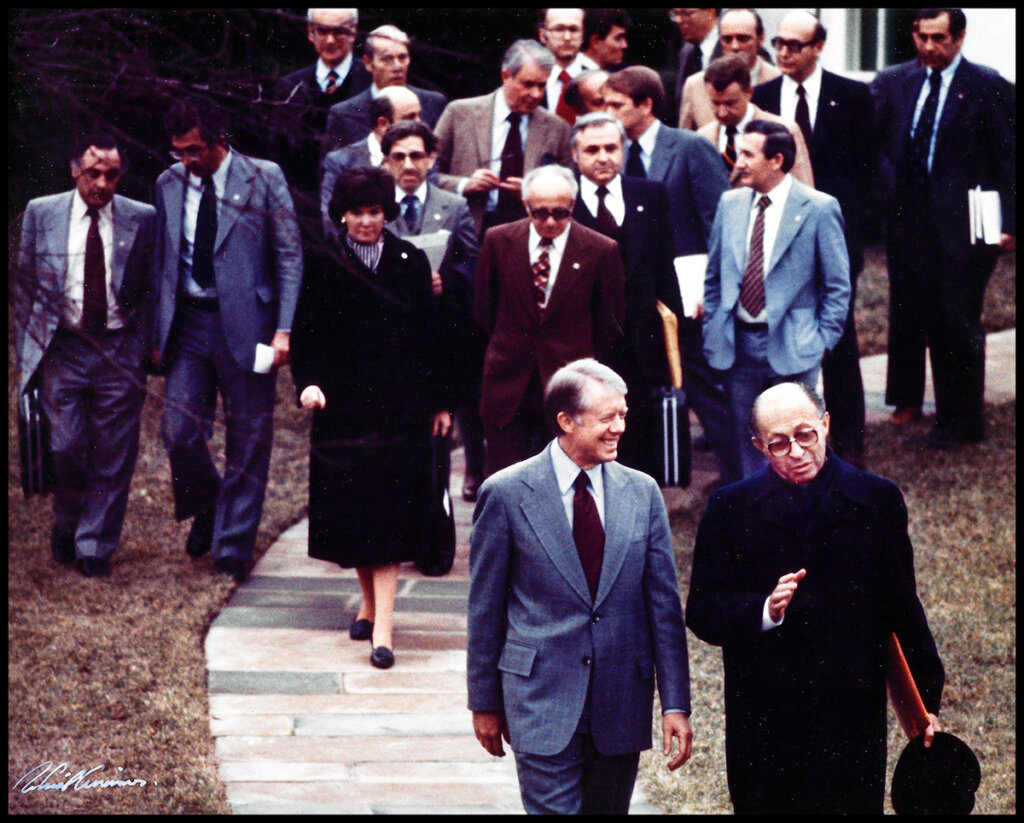
Carter and Begin in 1979. Photo by Robert A. Cumins
Carter walked Begin to his limousine during one of Begin’s visits to the White House in March 1979 — the same month as the signing of the Israeli-Egyptian Peace Treaty.
8 / 10 A photo album from Israel
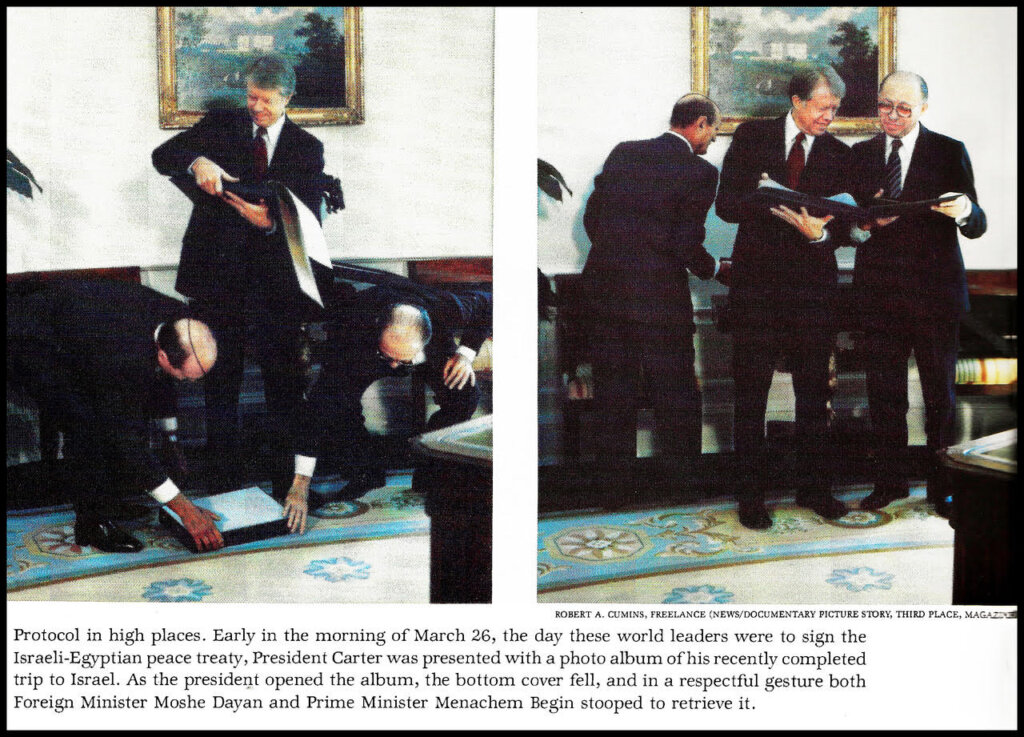
Carter with Begin and Dayan. Photo by Robert A. Cumins
On the morning of March 26, 1979, before signing the Israeli-Egyptian Peace Treaty, Begin and Dayan presented Carter with an album of photographs from his recent trip to Israel.
9 / 10 Signing the treaty
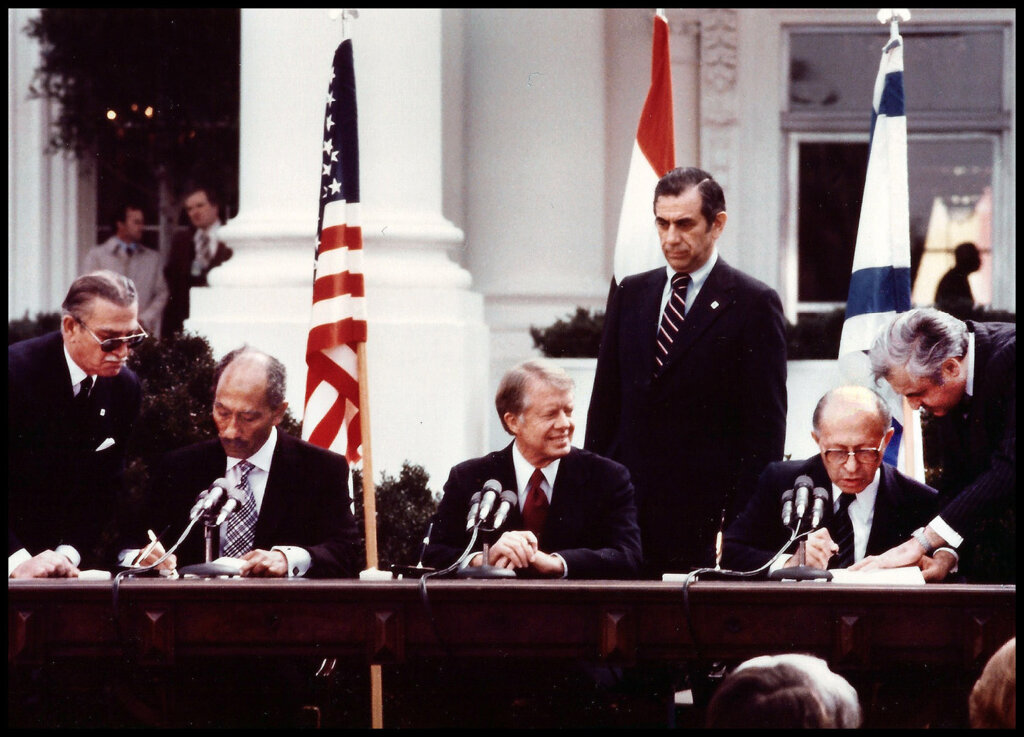
Carter, Sadat and Begin signed the Egyptian-Israeli Peace Treaty on March 26., 1979. Photo by Robert A. Cumins
Later that day, Carter, Begin and Egypt’s President Anwar Sadat formally signed the Israeli Egyptian Peace Treaty at the White House.
10 / 10 A celebratory dinner
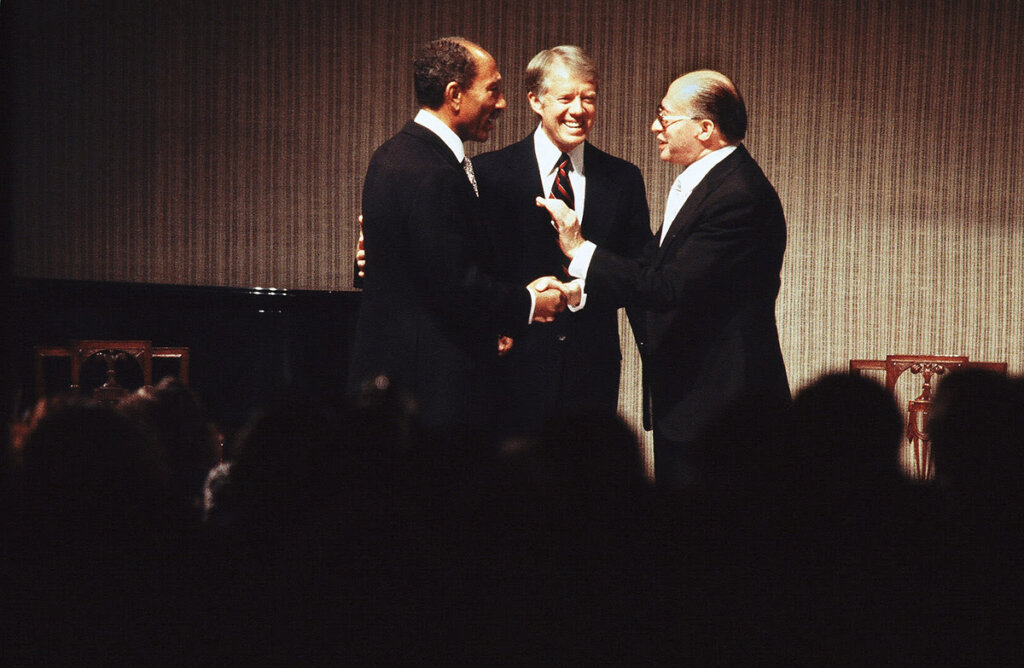
Camp David Accords. State Dinner. March 1979. Photo by Robert A. Cumins
After months of tense negotiations, Carter smiled as Begin and Sadat shook hands at a state dinner held to celebrate the newly agreed-upon peace treaty between the two countries.
















